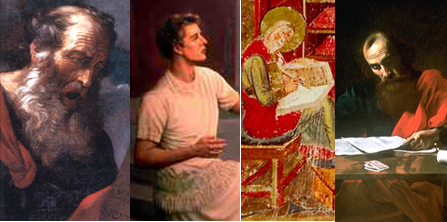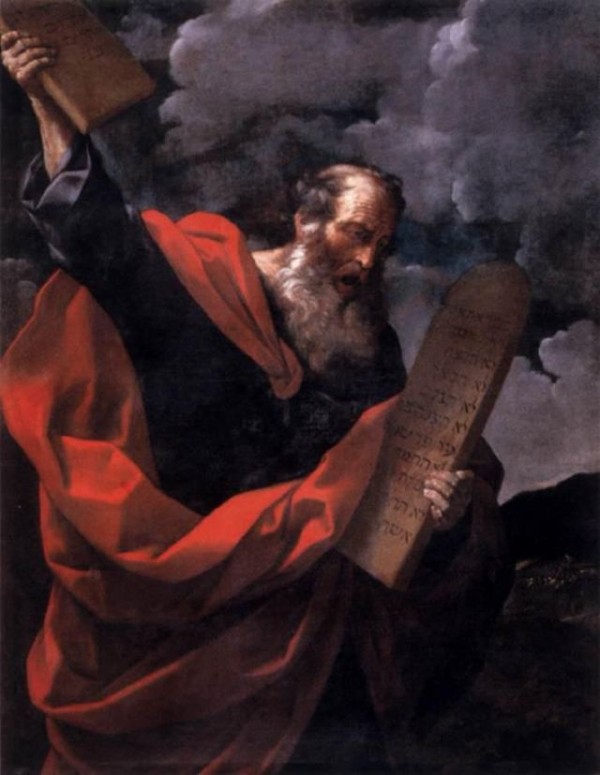Knowledge with Zeal: Biblical Examples of Using God-Anointed Intellect in His Service
Introduction
In Matthew 22:37 Jesus commanded all believers to love God with all of their heart, strength, and mind, and to love their neighbor as themselves, stating that the Law and the Prophets were predicated on these two commandments. Loving God will all of one’s mind can mean seeking to develop one’s intellectual capacities.1 Four men in the Bible: Moses, Ezra, Daniel, and Paul, exemplified obedience to this principle, even though three of them lived and died before Jesus ever uttered those words. Using non-Western narrative methodology—in this case, biography—let us study what it means to serve God with our intellects. Rick Nañez’s repeated premise of the need for intellectual development along with spiritual passion is accepted as the basis for this paper.2 One is compelled to agree with Donald Bowdle that “Jesus is Lord of learning …,” as well as every other area of life.3 Consequently, the greater weight in this paper will be given to the intellectual development, insofar as possible, of the lives of the biblical characters to be examined, and how that development impacted their service to God and man. These men serve as outstanding examples of combining powerful intellects with passionate piety.

Four Men Who Followed Jesus’ Command
There are two classes of education that are apparent in the lives of these four men. Moses and Daniel were classically educated in the liberal arts of their day while Ezra and Paul were theologically schooled in Judaism.
Moses

Moses with the tables of the Law, by Guido Reni, 17th century.
Image: Wikimedia Commons
Moses was educated in the best tradition that ancient Egypt had to offer (Acts 7:22). Education fit for a prince would have likely included literacy, architecture, painting, astronomy, and mathematics as these were some of the strong aspects of Egyptian culture.4 It also seems reasonable to assume that a prince would have been instructed in statecraft and law. A. W. Morton suggests Moses may have learned the duties of a scribe as part of his education and would have become literate in both Hebrew and Egyptian.5 That he rejected the lifestyle of the palace does not suggest that he eschewed his education.
In defending the Mosaic authorship of the Pentateuch, Gleason Archer explains that there were actually two strands of Moses’ intellectual development:
He had the education and background for authorship, since he received from his ancestors that wealth of oral law which originated from the Mesopotamian cultures back in the time of Abraham (hence the remarkable resemblances to the eighteenth century [b.c.] Code of Hammurabi), and from his tutors in the Egyptian court he received training in those branches of learning in which eighteenth dynasty Egypt excelled the rest of the ancient world. From his forebears he would naturally have received an accurate oral tradition of the career of the patriarchs and those revelations which God had vouchsafed to them.6
The Hebrew strain could have been gained from his mother but as the biblical record does not mention conclusively that she cared for him beyond the period of his weaning (Exodus 2:10),it seems most likely that he learned the traditions of his forebears during the years in the desert.
Both strands are evident in the Pentateuch. Moses was an outstanding storyteller in the oral tradition of the Hebrews. The Pentateuch reveals Moses as an experienced leader in many areas: law, tabernacle building, dietary regulations, and many other things. Concerning law, for example, E.B. Smick draws several correlations between the Mosaic law and other legal systems known in the Middle East at the time, specifically the famous law code of Hammurabi, implying that Moses was familiar with them.7 One could argue that his knowledge of Hammurabi’s Code could have come from either strand of his tradition.
The Pentateuch also reveals more than one literary style. While most of it is written in compelling narrative, certain small sections are poetic (i.e. Genesis 3:14-19; 4:23-24; 9:25-27; 49:1-27).8 Also, the table of the nations in Genesis reveals that Moses had a grasp of history that went beyond that of the Egyptians and the Hebrews.
Moses’ passion for God is not only reflected in the man of God and great leader that he indeed became, but also in the fact that he wrote the Pentateuch. The document upon which Hebrew society would be built, it provided a solid history, statecraft, and numerous other things—God breathed into and through Moses.
Category: Biblical Studies, Spring 2008


